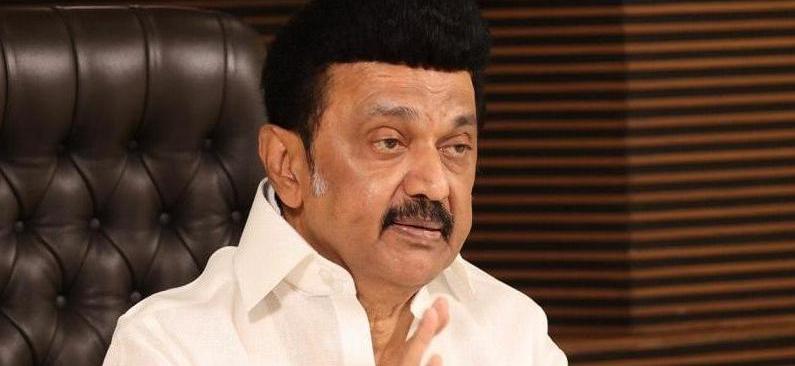
CM Stalin criticises UGC's move giving governors more power in VC appointments
text_fieldsNew Delhi: The new rules in the draft University Grants Commission (UGC) regulations for 2025 give chancellors or visitors the right to form a three-member search-and-selection committee to choose vice-chancellors.
Tamil Nadu Chief Minister M.K. Stalin slammed the action, calling it "authoritarian," a "direct assault on federalism," and “unconstitutional”.
Union Education Minister Dharmendra Pradhan On Monday (January 6), presented the draft University Grants Commission (Minimum Qualifications for Appointment and Promotion of Teachers and Academic Staff in Universities and Colleges, and Measures for Maintenance of Standards in Higher Education) Regulations, 2025, which make significant changes to the selection process for vice-chancellors and faculty appointments.
According to The Hindu, the search-cum-selection committee for vice-chancellor appointments will be comprised of three members: the chairperson, who will be selected by the visitor/chancellor, and two members representing the UGC chairman and the university's apex body, such as the syndicate or senate.
Failure to follow the guidelines for empowering chancellors or visitors to create a search-cum-selection committee for vice-chancellor appointments may result in repercussions including potential disqualification from participating in UGC schemes or offering degree programmes, according to the draft regulation, The Wire reported.
Notably, governors serve as chancellors of some state-run universities. This decision could change the dynamics of vice-chancellor selections, especially in opposition-ruled states such as Tamil Nadu, West Bengal, and Kerala, where disagreements between governments and governors have occurred.
Stalin wrote on X, “The new UGC regulations granting governors broader control over VC appointments and allowing non-academics to hold these posts are a direct assault on federalism and state rights. This authoritarian move by the Union BJP government seeks to centralise power and undermine democratically elected state governments. Education must remain in the hands of those chosen by the people, not dictated by Governors acting at the BJP government’s behest.”
“Tamil Nadu, which leads the nation with the highest number of top-ranking HEIs [Higher Educational Institutions], will not stay silent as our institutions are stripped of autonomy. Education is a subject under the Concurrent List in our constitution, and hence we consider the move of the UGC to issue this notification unilaterally as unconstitutional. This overreach is unacceptable, and Tamil Nadu will fight it legally and politically,” he added.
According to The Indian Express, the draft regulations allow individuals with high positions in industry, public policy, administration, or public sector organisations to be considered for university vice-chancellor positions, even if they are not professors.
Another significant development is that the UGC has established flexibility in faculty recruitment, allowing candidates to be considered for posts based on their performance in the UGC-NET, regardless of undergraduate or postgraduate discipline. This reform is intended to promote a more diverse academic environment, as envisioned in the National Education Policy (NEP) 2020.
Other notable features of the draft regulations include:
Emphasis on Indian languages: Encouraging publishing in Indian languages and recognising academic qualifications in these languages.
Relaxation of marks: Allowing a 5% relaxation in marks at undergraduate or postgraduate levels for candidates from Scheduled Caste/Scheduled Tribe/Other Backward Classes (OBC) (Non-creamy Layer)/EWS/Persons with Disabilities categories.
Notable contributions: Considering innovative teaching, research, or teaching lab development, consultancy contributions or sponsored research funding as a principal investigator or co-principal investigator, as well as teaching in Indian languages, as notable contributions for assistant professor appointments.
The UGC has invited stakeholders and the public to provide comments on the draft regulations within 30 days. Once implemented, these regulations will apply to central, state, private, and deemed universities.























